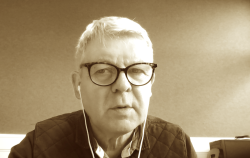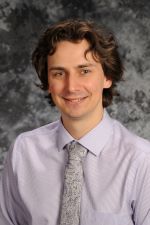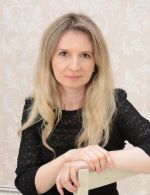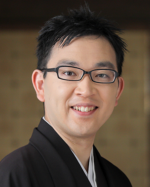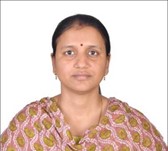
|
|
|
Invited SpeakersWe are pleased to announce the following five invited speakers: Prof. Xavier Coqueret
Institut de Chimie Moléculaire de Reims, Université de Reims Champagne-Ardenne, UMR CNRS 7312, 51687 Reims, France Title of talk: "From Starch to Pullulan and Nanocellulose: The Radiation Chemistry of Polysaccharides Illustrated Through Examples" Prof. Xavier Coqueret, received his PhD in organic chemistry from the University of Reims, France, in 1984. He joined the CNRS (Centre National de la Recherche Scientifique) as a junior scientist at the University of Lille to study the photochemistry of polymer-borne chromophores. On being appointed as a Professor of polymer chemistry at the Ecole Nationale Supérieure de Chimie de Lille (1991-2005), he extended the activities of his group to the modification of polymers by cross-linking or grafting using high energy radiation (electron beam), and to radiation-initiated polymerization. In 2005, Xavier Coqueret joined the University of Reims Champagne-Ardenne to initiate a research program on Polymer chemistry, with emphasis on radiation processing, high performance composites and bio-based materials. From 2008 to 2018, he has headed the Reims Institute of Molecular Chemistry. He is the author of more than 150 research articles and 20 book chapters, and the holder of 22 priority patents.
Dr. Gregory Horne
Center for Radiation Chemistry Research, Idaho National Laboratory, 1955 N. Freemont Ave., Idaho Falls, 83415, USA Title of talk: "The Role of Pulse Radiolysis in Advanced Nuclear Fuel Cycles" Dr. Gregory P. Horne is a radiation chemistry staff scientist at Idaho National Laboratory (INL) and director of the INL Center for Radiation Chemistry Research. Prior to his position at INL, Dr. Horne completed both his undergraduate and graduate studies in chemistry at the University of Manchester in 2007 and 2015, respectively. He completed his Ph.D. in experimental and computational radiation chemistry under Professor Simon Pimblott as part of the Nuclear Fission Research Science and Technology Doctoral Training Centre, a center of excellence for four-year inter-disciplinary advanced Ph.D. projects. During this period, Dr. Horne had the opportunity to perform plutonium and americium radiation chemistry experiments at the UK National Nuclear Laboratory on Sellafield Site, and time-resolved pulsed electron radiolysis experiments with Professor Mehran Mostafavi and the ELYSE group at the Université Paris-Sud Laboratoire de Chimie Physique. Over the two-year period since completing his Ph.D., Dr. Horne moved to the United States and undertook a joint-appointment postdoctoral research fellow position at California State University Long Beach and the University of Notre Dame Radiation Research Laboratory working alongside Professors Stephen Mezyk and Jay LaVerne. This joint position also afforded him visiting scientist status at Brookhaven National Laboratory, allowing continuation of his pulse radiolysis studies with Dr James Wishart and the LEAF group. Following this postdoc, Dr. Horne was awarded a Russell L. Heath Distinguished Postdoctoral Research Associate position at INL with Dr. Bruce Mincher in 2017, before being converted to permanent staff in 2018. Throughout all of this, Dr. Horne’s research has focused on fundamental radiation chemistry challenges throughout the nuclear fuel cycle, specializing in used nuclear fuel recycling processes, molten salts, and the radiation induced redox chemistry of the actinide series.
Prof. Sylwia Ptasinska
Department of Physics and Notre Dame Radiation Laboratory, University of Notre Dame, Notre Dame, Indiana 46556, USA Title of talk: "Importance of Radiation Chemistry to Low-Temperature Plasmas" Sylwia Ptasinska is an Associate Professor at the University of Notre Dame in the USA, where she holds a joint position as a faculty member of the Radiation Laboratory and the Department of Physics. Prof. Ptasinska has a master's degree in Physics from Maria Curie-Sklodowska University, Lublin, Poland, and a Ph.D. in Physics from Leopold-Franzens University, Innsbruck, Austria. Her lab research team performs a wide range of studies on low-energy electron effects on biomolecules, interfacial processes on semiconductor electrodes for solar cells, and plasma physics and chemistry. Though their experimental investigations address fundamental questions, their goal is to apply this research in areas such as energy, medicine, and industry.
Prof. Tsuneaki Sakurai
Faculty of Molecular Chemistry and Engineering, Kyoto Institute of Technology, Hashikami-cho, Matsugasaki, Sakyo-ku, Kyoto 606-8585, Japan Title of talk: "Fabrication of Organic Nanowires Developed by Radiation-Triggered Polymerization of Organic Molecules in Heavy Ion Tracks" Tsuneaki Sakurai is a Junior Associate Professor at Kyoto Institute of Technology (KIT), Japan. He received his PhD from the University of Tokyo, Japan, in 2012, focusing on the synthesis of π-conjugated molecules and evaluation of their semiconducting property. He worked as a postdoctoral fellow at Osaka University in 2012 and started his academic career as an Assistant Professor there in 2014, and then the group moved to Kyoto University in 2015, where he studied the evaluation of physical properties of various organic materials and radiation-triggered solid-state polymerization using swift heavy ions (SHIs). In 2020, he became a Junior Associate Professor at KIT, and started his research with his own team at KIT, collaborating with Prof. Masaki Shimizu. His research interests include the development of organic materials and nanomaterials with optical/electrical functions via both the approaches of organic synthesis & self-assembly and radiation (SHI)-triggered solid-state polymerization.
Dr. Beena G. Singh
1Radiation and Photochemistry Division, Bhabha Atomic Research Centre, Trombay, Mumbai-400085, India; 2Homi Bhabha National Institute, Anushaktinagar, Mumbai - 400094, India Title of talk: "Role of Gold Nanoparticles on the Free Radical Reaction of Antioxidants" Dr. Beena G. Singh is a Researcher at the Bhabha Atomic Research Centre, India. She has obtained her PhD in Chemistry from University of Mumbai in 2007. Her main area of interest is investigating the reaction mechanism of radiation induced redox reactions of organic molecules. She has extensively worked on organoselenium compounds and carried out detailed pulse radiolysis studies for identification of selenium centered radical cations, their interactions with heteroatoms and their free radical induced redox reactions. Her work on organoselenium compounds has established the role of one and two electron processes in their antioxidant activity. She has published 78 articles in peer reviewed scientific journals. She is the recipient of Carl Storm International Diversity Award from the organizers of Gordon Research Conference in Radiation Chemistry, 2012 and Scientific & Technical Excellence Award from Department of Atomic Energy, 2015. |
